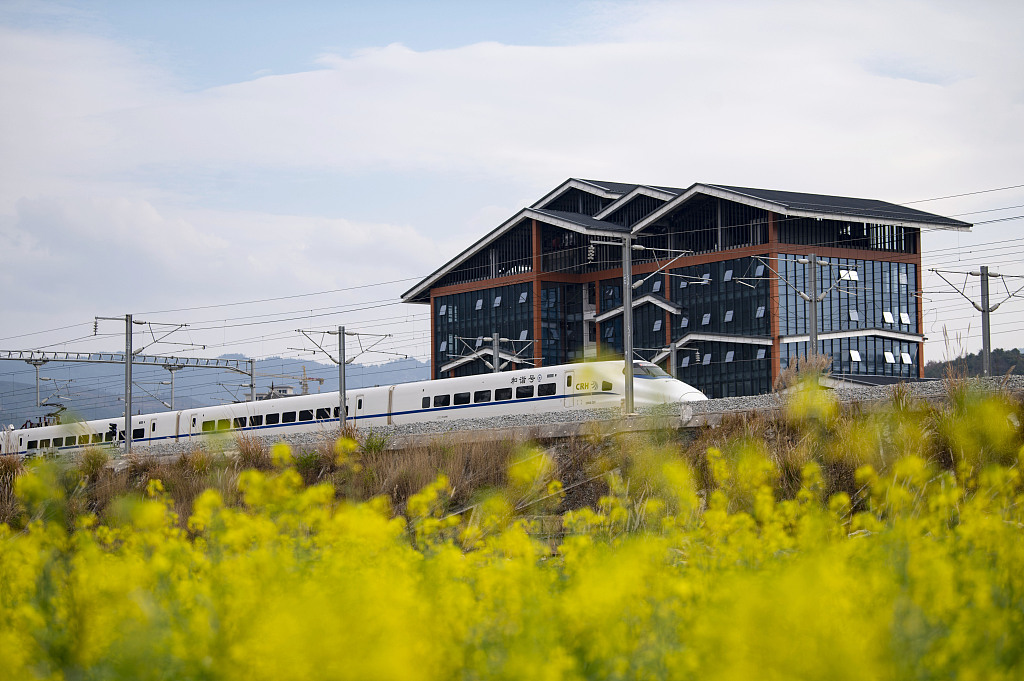The objective is common prosperity


Some foreign observers think the third plenary session of the 20th Central Committee of the Communist Party of China offered little in the way of changed economic policies.
They are wrong.
The plenum consolidated on the significant changes brought about by policies implemented earlier that were designed to achieve the goal of common prosperity.
The plenum confirmed the direction and continuation of the most significant changes in the Chinese economy since 2008. It endorsed the shift to a digital economy. It continued to build defenses to counter the subversive intent of chip sanctions and trade tariffs. The plenum also reaffirmed unwavering support for the WTO free trade environment.
The plenum provided support for the ongoing efforts being made toward reform and opening-up, which is necessary for common prosperity. The decisions reflect the need to protect the fruits of those reforms and to ensure that the progress made is not stunted or restrained in the future by attempts to hamper China's growth.
Achieving a high-level socialist market economy and socialist modernization ensures that nobody is left behind by economic development. The first objective, lifting people out of absolute poverty has been achieved. The new objective is common and moderate prosperity and the plenum policy announcements should be viewed in this context.
These policy objectives have practical meaning whereas in Western electoral campaigns, similar policy objectives are often carelessly promoted and then just as carelessly discarded.
It is this binding policy commitment and implementation that makes plenum decisions so significant.
The development of new and high quality productive forces is one of the key phrases to emerge from the plenum. It projects the Chinese economy as becoming a leading light in the technology innovation space as it builds an advanced digital economy.
The new productive forces include further support for and development of clean technologies and is a key reference in the context of future economic growth. The government aims to expand new foreign trade relations in this area, partly in response to recent US and European Union tariffs on green technology.
The plenum recognized that China must "adapt to the new round of scientific and technological revolution and industrial transformation". The ultimate goal is to make China a champion of innovation by generating disruptive technology and scaling up into high-end manufacturing. This is consistent with the gradual change in economic focus where economic growth and continued prosperity come from the digital economy.
It also reflects a determination to achieve technological self-reliance in order to help China withstand the United State's strategic technological containment. It is a prudent policy given the possibility of a new Trump administration and its stated intention to further hamper China's growth.
The desire to further deepen reform comprehensively consolidates the benefits of economic reform so that a high-standard socialist market economy can continue to provide the foundation for Chinese modernization. The key features include leveraging the role of the market to foster a fairer market environment to make resource allocation as efficient and productive as possible.
Although these objectives of opening-up are desired by Western businesses, they have a slightly different meaning in the Chinese context. A fairer market environment does not open the door to unfettered rapaciousness. A fair market environment delivers economic benefits more equitably. So too with resource allocation.
The emphasis is on responsibility and obligations toward improving society. In the West, these are part of environmental, social and governance responsibilities. From the Chinese perspective, it is focus on the social responsibility of business to add to common prosperity rather than provide advantages to elite groups.
This suggests a continuation of moves to curb the power and influence of large business groups. The regulatory changes in relation to expensive after-school tutoring services were designed to ensure equality of access to education so that success was not dependent upon wealth.
Common moderate prosperity is not an empty phrase. The third plenum remains committed to endorsing the social responsibility of business to enhance common prosperity in all fields, including the living environment.
Ecological civilization is now cast as a key feature of China's modernization with aims to promote the reduction of carbon and pollution. China is installing renewables so rapidly that it will meet its 2030 target by the end of this month — or six and a half years early.
China is installing around 10 gigawatts of wind and solar generation capacity every fortnight. The climate agenda supporting green growth and tackling climate change offers new collaborative opportunities for foreign investment.
Opening-up is a defining feature of Chinese modernization and it brings benefits for foreign companies and the global economy. Essential to success is strong support for free trade in the face of pressure for protectionist tariffs.
It is often assumed that opening-up is an exclusive invitation to Western investment in China. The Global Development Initiative and Global Civilization Initiative all suggest that the opening-up invitation is increasingly being extended to the Global South. The mature markets of the EU and the US remain important, but the Global South is the area of future global economic growth.
The third plenum did not signal a change in economic priorities. It confirmed that China is committed to changing its growth paradigm, from chasing a nominal growth rate to building a resilient economy driven by digital and technological innovation that thrives despite protracted geopolitical repercussions.
The author is an international financial technical analysis expert and a former national board member of the Australia-China Business Council.

































